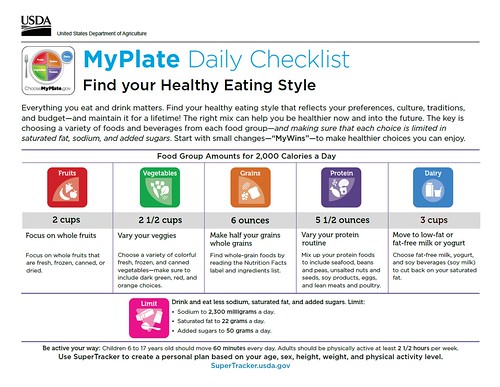How Nutrition Affects Teen Mental Health
Last Updated: February 2021
Increasingly these days, there is less time to eat, and your teenager may be more likely to indulge in cravings for unhealthy foods, especially when it comes to accessibility and availability.
Though your teen may not think much about what he or she is putting into his or her body, what he or she chooses to eat is important for both the body and mind.
Read more about how nutrition affects teen mental health.
The Importance of a Balanced Diet for Teens
Your teenager has likely heard about the importance of eating a balanced diet and of eating at least five servings of fruits and vegetables a day. The current recommendations from the USDA are based on the portion sizes of the five food groups.
To make it easier for teens to visualize what foods they should be putting into their body each day, the USDA created recommendations known as “MyPlate.”

The bottom line is, having a balanced nutritional diet has always been a crucial aspect of good health for developing teens.
Better Nutrition, Better Mental Health
Although many know that having a nutritional diet is important for physical health, there is a lot less conversation about the other health factors that diet impacts – including mental health.
According to one study published in the National Institutes of Health (NIH) titled “Food, Mood and Brain Health,” the brain consumes 20% of one’s daily caloric intake. So if your teenager is eating unhealthy food all day long, that’s what they are feeding their brain as well.
The study highlights how the brain may have even more specific needs if an individual is dealing with anxiety, depression or a mood disorder.
The research also shows those with these mental health disorders often have nutritional deficiencies in folate, Omega-3 fatty acids and vitamin B12, which are all crucial to brain function, stating:
“In order to promote mental health and recovery from mental illness, one could consider encouraging… a diet that is optimal for brain health. Specifically, this diet would include adequate building blocks for monoamine neurotransmitters, be rich in omega-3 fatty acids, be anti-inflammatory, foster BDNF production and support a healthy microbiome.”
Some of the recommended foods for brain and mental health come from the Mediterranean Diet, which includes:
- Fish and seafood
- Legumes, such as beans, lentils and peas
- Olive oil
- Whole grains
There are also foods to avoid altogether or eat sparingly, such as refined grains like white bread, too much red meat or soft drinks.
Why a Healthy Body Contributes to a Happy Mind
Without stressing too much about each and every single thing your teen daughter or son eats, a general rule to have them ask when making food choices is: “Will this make your body healthy?”
Remember that if your child is making choices that make their body healthy, then they are also making choices that will make their mind happy.
What your teen consumes now could benefit their anxiety or depression and not only improve their physical health but mental health as well, into adulthood.
Contact Embark Behavioral Health to learn more about the connection between nutrition and teen mental health today.
